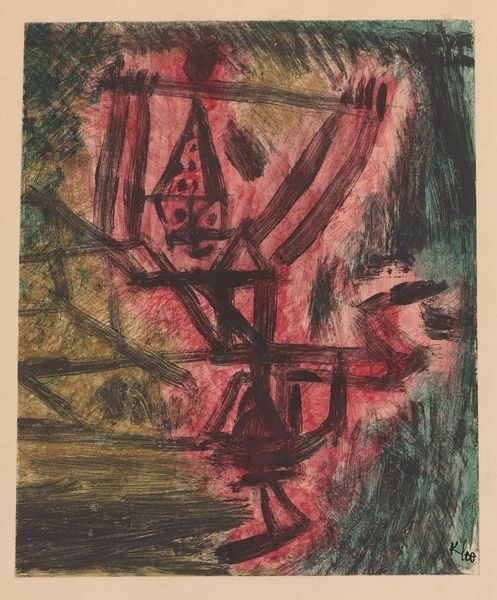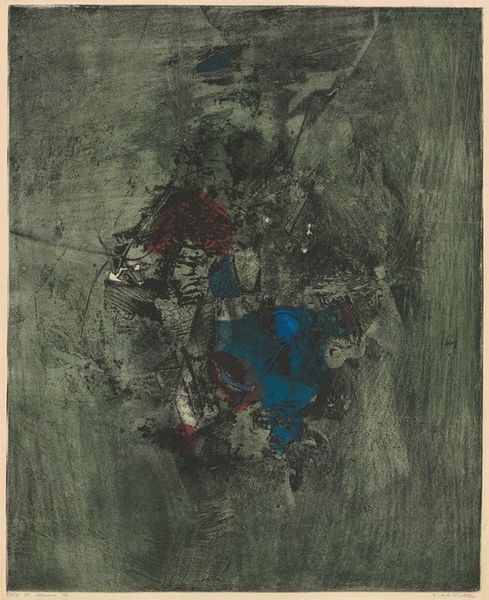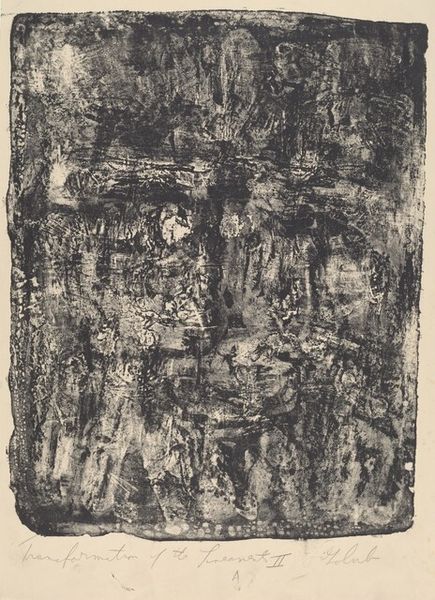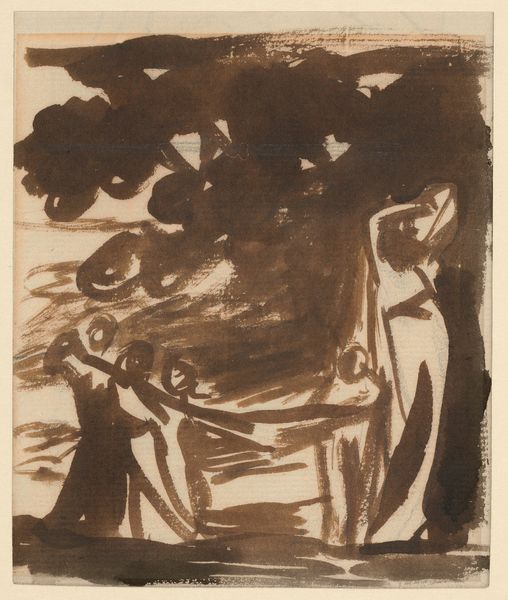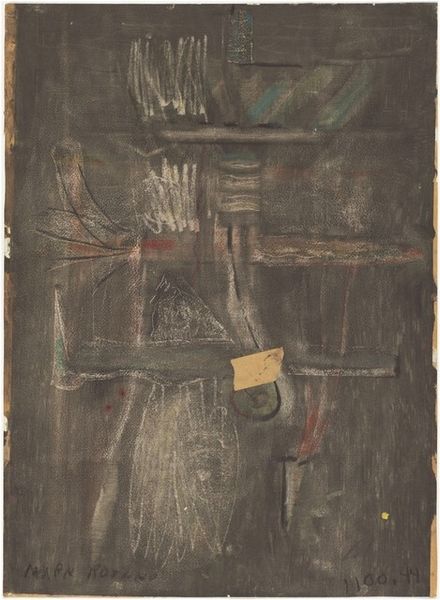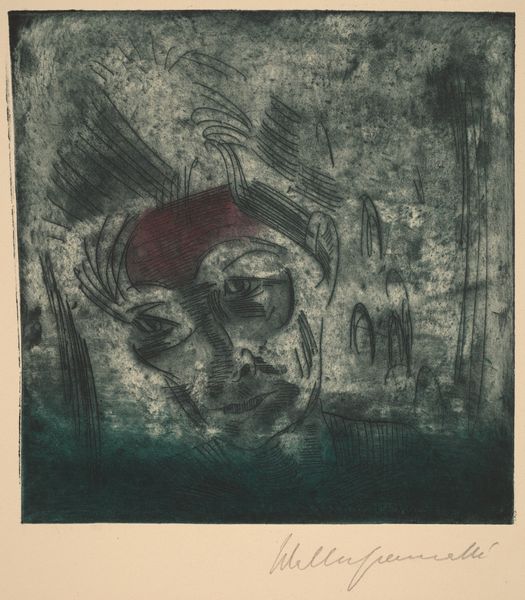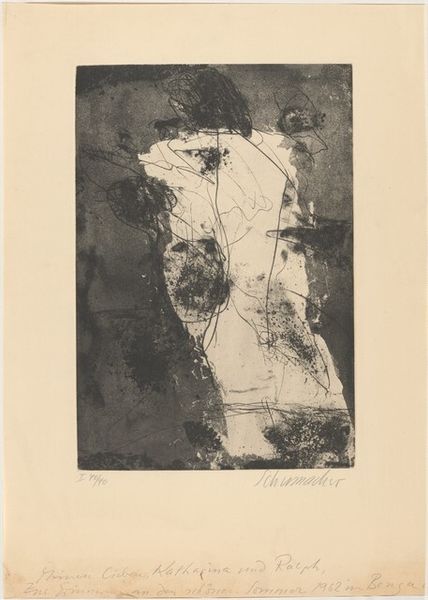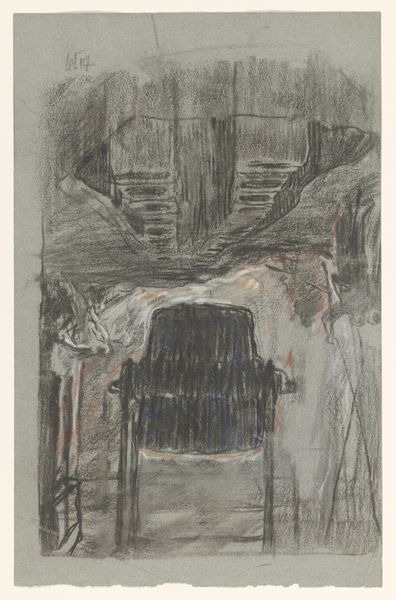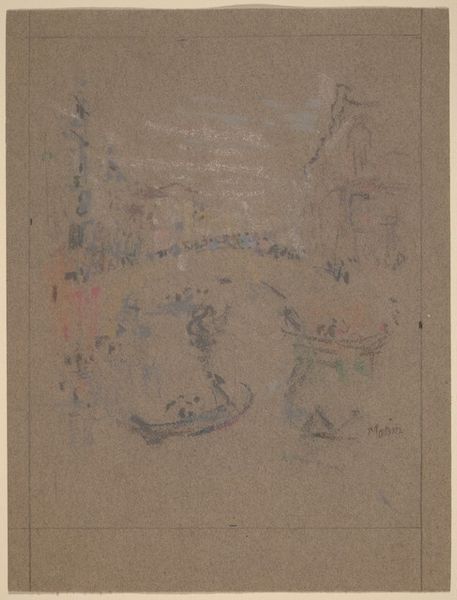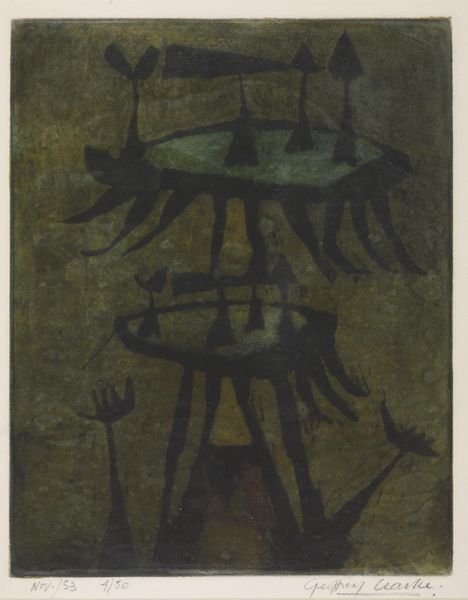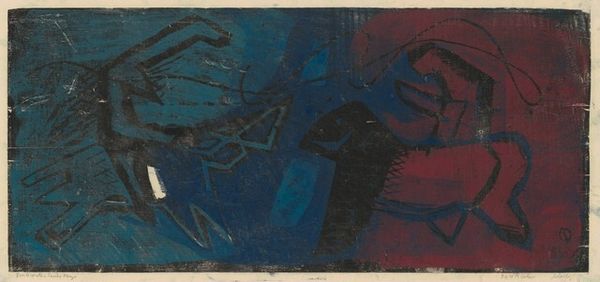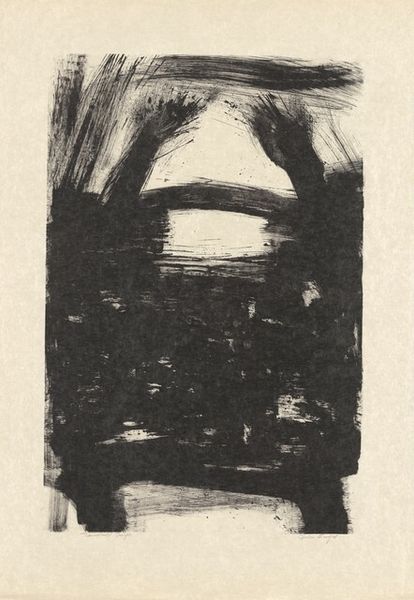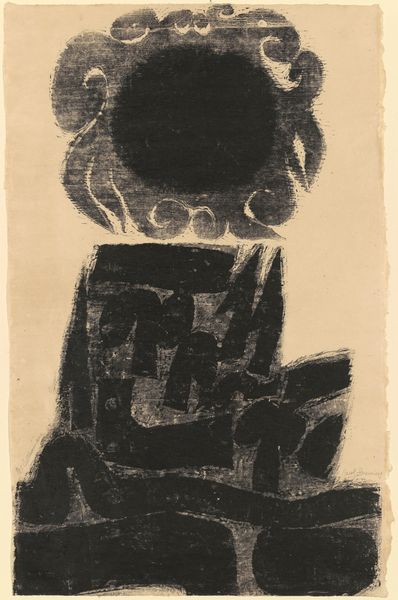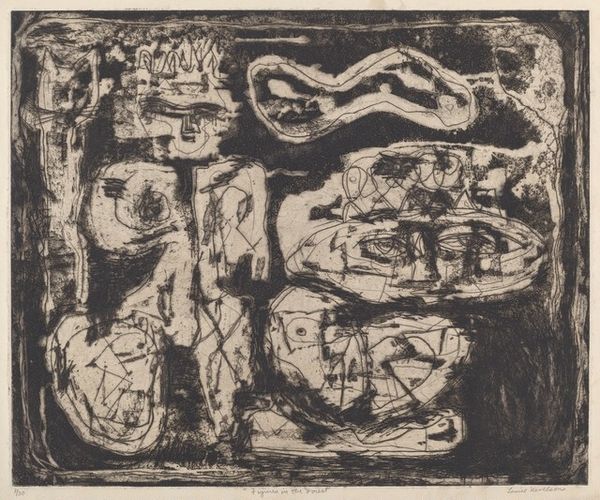
Dimensions: sheet: 22.23 × 15.24 cm (8 3/4 × 6 in.)
Copyright: National Gallery of Art: CC0 1.0
Editor: So this is Louise Nevelson’s "The Ancient Garden," a monoprint drawing from the mid-1950s. I'm immediately struck by its kind of haunting, ethereal feel. What do you see in this piece, beyond the sort of surface description? Curator: It’s fascinating how Nevelson merges abstraction and figuration, isn’t it? The way the face emerges from the darkness evokes a sense of uncovering, of revealing something hidden, perhaps a suppressed identity or forgotten history. Do you notice the almost mask-like quality of the face, how it seems to float above the gestural, undefined space below? Editor: Yes, it’s like a memory surfacing, but the mask suggests performance, a constructed identity. Was Nevelson perhaps engaging with the performative aspects of gender and identity? Curator: Exactly. Considering the era and Nevelson’s position as a female artist, we can certainly read this as a commentary on the societal constraints placed on women, the masks they were expected to wear. The "ancient" aspect may reference the historical burdens and expectations women have carried, the archetypes they’ve been forced into. Do you think the technique contributes to this reading? Editor: Absolutely, the blurred lines and the monoprint technique itself feel like a statement against the idea of fixed, easily defined identities. It speaks to fluidity and constant re-evaluation. Curator: Precisely. This piece becomes a powerful visual statement on the complexities of selfhood and the need to challenge imposed narratives. It encourages us to question who gets to define our identities and how we can reclaim our authentic selves from the weight of historical and societal expectations. Editor: I didn't think I’d be considering those issues in an "ancient garden" setting! It really changes my view of what's actually in this print. Curator: Art has that power, doesn't it? To surprise us, challenge us, and prompt us to re-examine our perspectives.
Comments
No comments
Be the first to comment and join the conversation on the ultimate creative platform.
